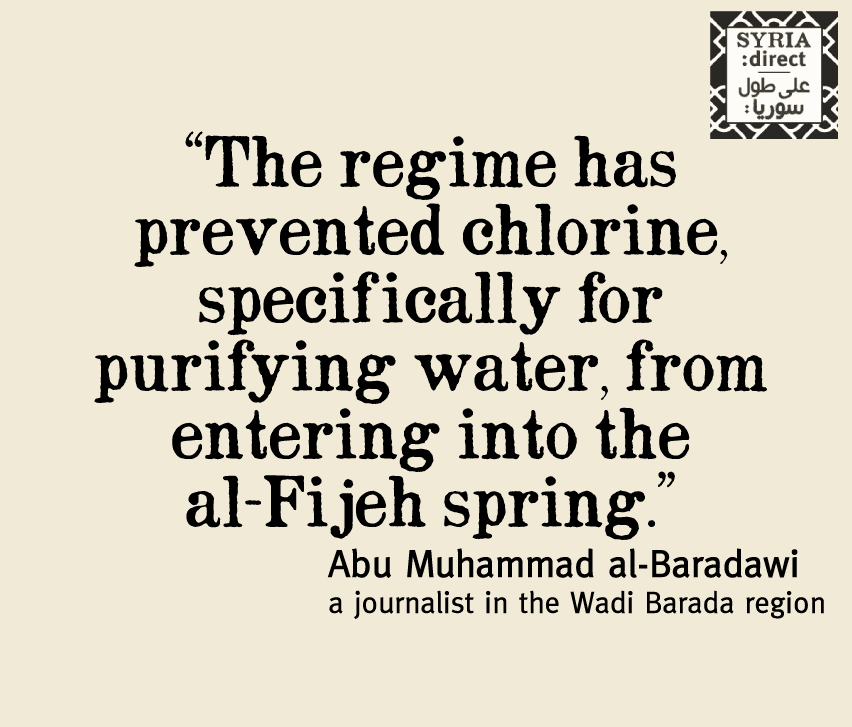Wadi Barada journalist: Without clean water, ‘intestinal ailments will spread’
The regime’s 67-day long blockade of the rebel-held Wadi Barada […]
18 October 2015
The regime’s 67-day long blockade of the rebel-held Wadi Barada region northwest of Damascus has rendered Ein al-Fijeh, the main spring which provides drinking water to the capital, a conduit of water-borne illness.
As a result of unclean water, local women and children with weak immune systems have been the first victims of severe intestinal ailments in the area, Abu Muhammad al-Baradawi, a journalist in the Wadi Barada region, tells Syria Direct’s Ghalia Mukhalalati.
Because Wadi Barada is under a strangling blockade, medical personnel and activists can do little more than “to caution the civilians to not drink the water until it is boiled.”
Q: For how long has the regime prevented the entry of chlorine into Ein al-Fijeh? Is there any other way to purify the water at the spring?
The regime has prevented chlorine, specifically for purifying water, from entering into the al-Fijeh spring through the blockade imposed on the entire region 67 days ago. There isn’t any other means by which to purify the water except with chlorine.
Q: What cases of illness have there been as a result of a lack of clean water? What casualties or injuries have occurred?
If the lack of water purification continues, intestinal ailments will spread greatly. The situation might spiral out of the control of the local clinic, which could result in widespread fatalities in the region because of the blockade and since there is a large deficit across the entire country in terms of medical equipment and medicine.
Those afflicted thus far have been light to moderately severe cases. The majority of them have been children and women with weak immune systems. There might be cases that need to be treated in Damascus, but the regime won’t let them pass.
As for the capital Damascus, residents will be more likely to avoid cases of intestinal inflammation because of the existence of clinics that the Syrian government supports there. Damascus is not a blockaded city like Ein al-Fijeh.
Q: In what ways do you prevent the contamination of water in Ein al-Fijeh?
Currently there isn’t any way other than cautioning the civilians to not drink the water until it is boiled and to treat the afflicted in the local clinic and give [the medical personnel] the necessary medicine to prevent it.







